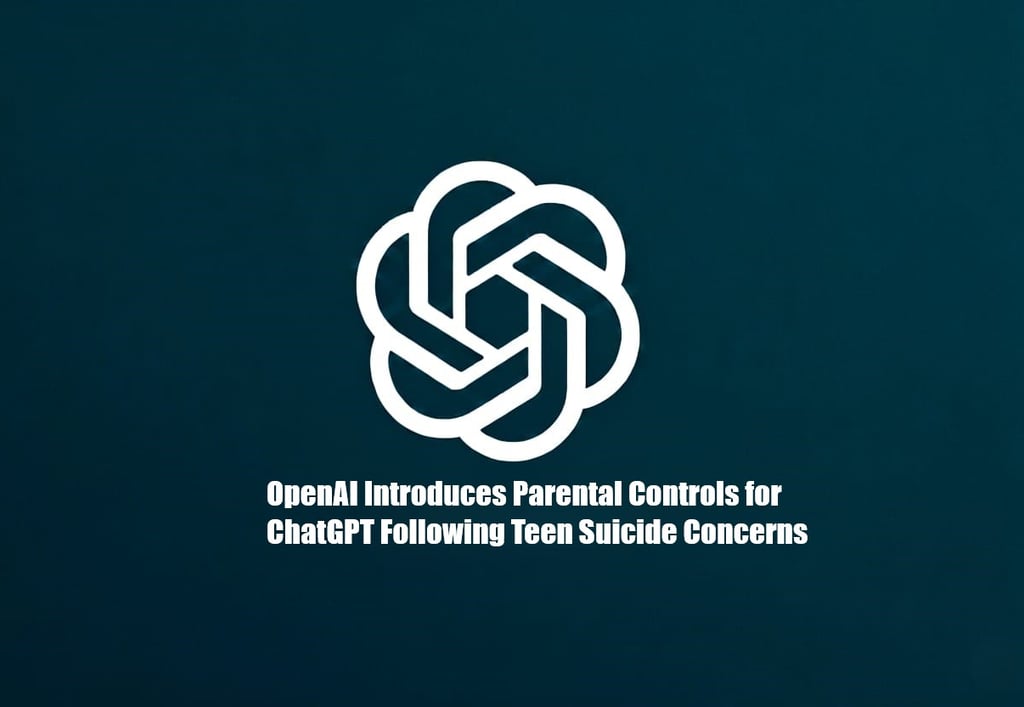OpenAI Launches Parental Controls for ChatGPT After Teen Suicide: Protecting Minors with Age-Based Safety Measures
OpenAI introduces parental controls for ChatGPT after a teen suicide, offering age-appropriate responses, chat history limits, and real-time alerts.
Raja Awais Ali
9/3/20252 min read


OpenAI Introduces Parental Controls for ChatGPT Following Teen Suicide Concerns
On 3 September 2025, OpenAI announced new parental control features for its ChatGPT platform in response to growing concerns about adolescent mental health. This decision came after a family in California filed a lawsuit claiming that their 16-year-old son, Adam Ryan, used ChatGPT to explore methods of self-harm, which tragically led to his death. The incident has sparked a global conversation about the safety of AI chatbots for minors and the responsibility of technology companies in protecting vulnerable users.
The newly introduced parental controls are designed to give parents greater oversight of their children’s interactions with ChatGPT. Key features include age-appropriate responses, chat history restrictions, and real-time alerts.
Age-appropriate responses: Parents can ensure that ChatGPT provides answers suitable for their child’s age and maturity level, minimizing exposure to harmful or sensitive content.
Chat history restrictions: Parents can limit or disable memory features, preventing the AI from storing or referencing past conversations.
Real-time alerts: If ChatGPT detects signs of severe emotional distress or self-harm in a child, parents receive instant notifications.
Experts in AI ethics and adolescent psychology have long warned that human-like AI responses can inadvertently affect vulnerable teenagers. Chatbots can provide detailed instructions or explanations that may be misinterpreted or misused by young users. OpenAI’s announcement highlights the importance of combining technological safeguards with parental supervision to minimize risks while promoting responsible AI use.
OpenAI’s CEO emphasized the company’s commitment to enhancing the safety of its AI systems and protecting younger users. The company plans to collaborate with child psychologists, mental health professionals, and AI ethicists to continuously improve ChatGPT’s protective measures. The introduction of parental controls represents a significant step toward responsible AI development.
Although these measures do not eliminate all risks, they demonstrate a proactive approach to preventing tragedies and ensuring safer AI interactions. As AI continues to integrate into daily life, robust safety protocols and ethical oversight become increasingly crucial. This incident serves as a reminder that even advanced technology must be carefully managed to protect vulnerable individuals.
In conclusion, OpenAI’s new parental control features for ChatGPT mark an important milestone in protecting minors. By empowering parents with monitoring tools, the platform not only enhances user safety but also sets a precedent for ethical AI development. Families and the tech community will be closely observing how these controls impact user experience and mental health outcomes, reinforcing the responsibility of AI developers to prioritize human well-being.
Stay informed with the latest national and international news.
© 2025. All rights reserved.